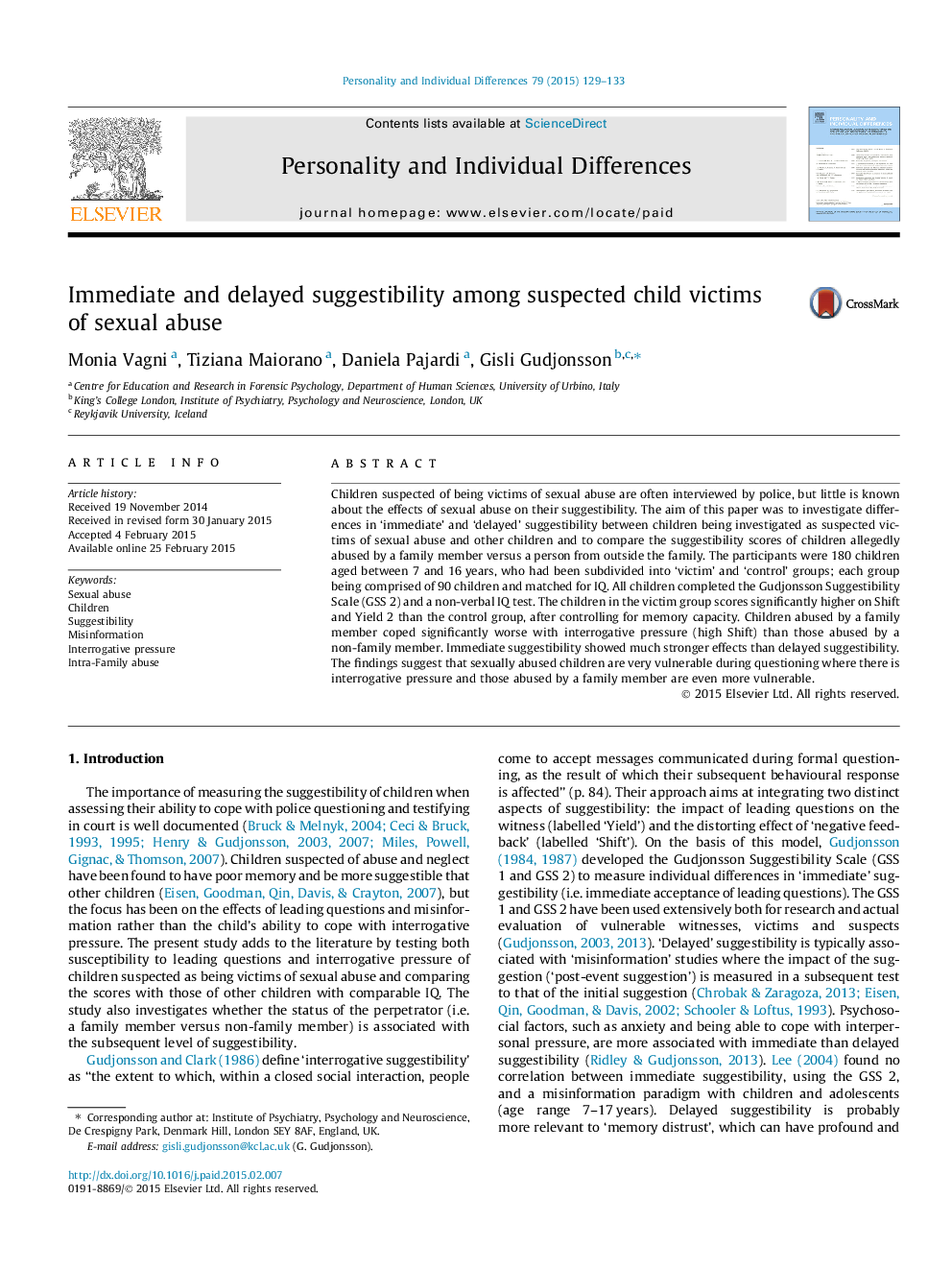| Article ID | Journal | Published Year | Pages | File Type |
|---|---|---|---|---|
| 890262 | Personality and Individual Differences | 2015 | 5 Pages |
•Interrogative suggestibility is enhanced in cases of sexual abuse.•Reduced ability to cope with interrogative pressure is most affected.•Children abused by family members are particularly susceptible to pressure.•Immediate suggestibility shows stronger effects than delayed suggestibility.
Children suspected of being victims of sexual abuse are often interviewed by police, but little is known about the effects of sexual abuse on their suggestibility. The aim of this paper was to investigate differences in ‘immediate’ and ‘delayed’ suggestibility between children being investigated as suspected victims of sexual abuse and other children and to compare the suggestibility scores of children allegedly abused by a family member versus a person from outside the family. The participants were 180 children aged between 7 and 16 years, who had been subdivided into ‘victim’ and ‘control’ groups; each group being comprised of 90 children and matched for IQ. All children completed the Gudjonsson Suggestibility Scale (GSS 2) and a non-verbal IQ test. The children in the victim group scores significantly higher on Shift and Yield 2 than the control group, after controlling for memory capacity. Children abused by a family member coped significantly worse with interrogative pressure (high Shift) than those abused by a non-family member. Immediate suggestibility showed much stronger effects than delayed suggestibility. The findings suggest that sexually abused children are very vulnerable during questioning where there is interrogative pressure and those abused by a family member are even more vulnerable.
